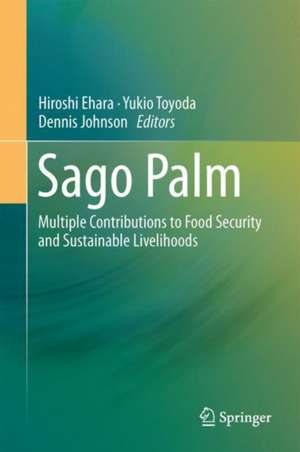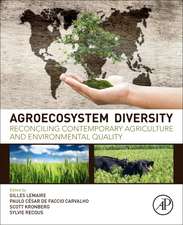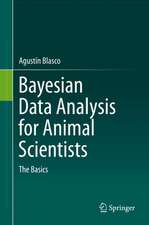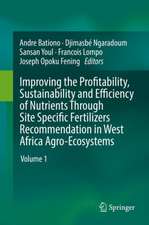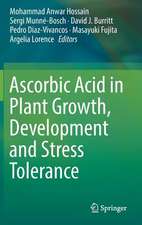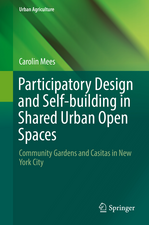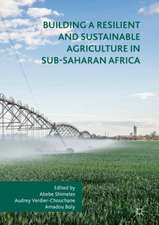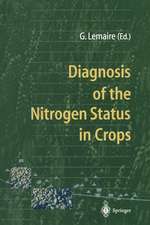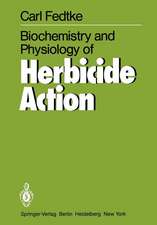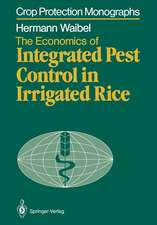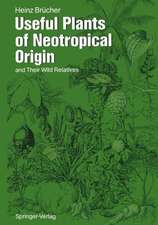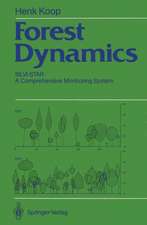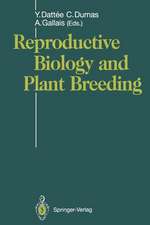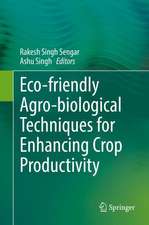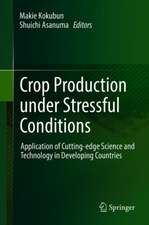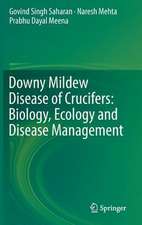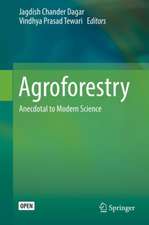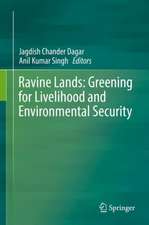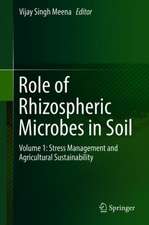Sago Palm: Multiple Contributions to Food Security and Sustainable Livelihoods
Editat de Hiroshi Ehara, Yukio Toyoda, Dennis V. Johnsonen Limba Engleză Hardback – 8 mar 2018
Problems such as food shortages due to increasing populations, global warming and climate change, and decreasing reserves of oil and other underground resources, have become more pressing in recent years. In the context of these problems, the book examines the role of the sago palm in sustainable food production, in the manufacture of other foodstuffs, as a raw material for ethanol and in the manufacture of biodegradable plastics. In addition to academics, this book will be useful to researchers and government officials working for international agencies, national governments, municipalities, and other research organizations; technicians, researchers, managers, entrepreneurs, and others working in industries such as agriculture, plant production, food production, manufacturing, chemical engineering, energy production, and distribution.
| Toate formatele și edițiile | Preț | Express |
|---|---|---|
| Paperback (1) | 426.72 lei 3-5 săpt. | |
| Springer Nature Singapore – 29 ian 2019 | 426.72 lei 3-5 săpt. | |
| Hardback (1) | 386.68 lei 38-44 zile | |
| Springer Nature Singapore – 8 mar 2018 | 386.68 lei 38-44 zile |
Preț: 386.68 lei
Nou
Puncte Express: 580
Preț estimativ în valută:
73.100€ • 80.35$ • 62.16£
73.100€ • 80.35$ • 62.16£
Carte tipărită la comandă
Livrare economică 18-24 aprilie
Preluare comenzi: 021 569.72.76
Specificații
ISBN-13: 9789811052682
ISBN-10: 9811052689
Pagini: 290
Ilustrații: XIII, 330 p. 106 illus., 71 illus. in color.
Dimensiuni: 155 x 235 mm
Greutate: 0.64 kg
Ediția:1st ed. 2018
Editura: Springer Nature Singapore
Colecția Springer
Locul publicării:Singapore, Singapore
ISBN-10: 9811052689
Pagini: 290
Ilustrații: XIII, 330 p. 106 illus., 71 illus. in color.
Dimensiuni: 155 x 235 mm
Greutate: 0.64 kg
Ediția:1st ed. 2018
Editura: Springer Nature Singapore
Colecția Springer
Locul publicării:Singapore, Singapore
Cuprins
Notă biografică
Book Editors:
Hiroshi Ehara, Ph.D., Professor
International Cooperation Center for Agricultural Education (ICCAE), Nagoya University
Yukio Toyoda, M.A., Professor
College of Tourism, Rikkyo University
Dennis V. Johnson, Ph.D.
Former University of Houston, Consultant
Hiroshi Ehara, Ph.D., Professor
International Cooperation Center for Agricultural Education (ICCAE), Nagoya University
Yukio Toyoda, M.A., Professor
College of Tourism, Rikkyo University
Dennis V. Johnson, Ph.D.
Former University of Houston, Consultant
Textul de pe ultima copertă
This book is open access under a CC BY 4.0 license.
This book addresses a wide variety of events and technologies concerning the sago palm, ranging from its botanical characteristics, culture and use to social conditions in the places where it is grown, in order to provide a record of research findings and to benefit society. It discusses various subjects, including the sago palm and related species; differentiation of species of starch-producing palm; habitat, morphological, physiological and growth characteristics; culture and management; productivity of carbon dioxide; starch extraction and manufacture; characteristics and utilization of starch; and cultural anthropological and folkloristic aspects.
Problems such as food shortages due to increasing populations, global warming and climate change, and decreasing reserves of oil and other underground resources, have become more pressing in recent years. In the context of these problems, the book examines the role of the sago palm in sustainable food production, in the manufacture of other foodstuffs, as a raw material for ethanol and in the manufacture of biodegradable plastics. In addition to academics, this book will be useful to researchers and government officials working for international agencies, national governments, municipalities, and other research organizations; technicians, researchers, managers, entrepreneurs, and others working in industries such as agriculture, plant production, food production, manufacturing, chemical engineering, energy production, and distribution.
This book addresses a wide variety of events and technologies concerning the sago palm, ranging from its botanical characteristics, culture and use to social conditions in the places where it is grown, in order to provide a record of research findings and to benefit society. It discusses various subjects, including the sago palm and related species; differentiation of species of starch-producing palm; habitat, morphological, physiological and growth characteristics; culture and management; productivity of carbon dioxide; starch extraction and manufacture; characteristics and utilization of starch; and cultural anthropological and folkloristic aspects.
Problems such as food shortages due to increasing populations, global warming and climate change, and decreasing reserves of oil and other underground resources, have become more pressing in recent years. In the context of these problems, the book examines the role of the sago palm in sustainable food production, in the manufacture of other foodstuffs, as a raw material for ethanol and in the manufacture of biodegradable plastics. In addition to academics, this book will be useful to researchers and government officials working for international agencies, national governments, municipalities, and other research organizations; technicians, researchers, managers, entrepreneurs, and others working in industries such as agriculture, plant production, food production, manufacturing, chemical engineering, energy production, and distribution.
Caracteristici
Demonstrates the benefits of sago starch development for subsistence farmers and food industries
Explores the potential for economic development of sago starch production in marginal peat swamp soils
Documents how greater utilization of sago starch in rural areas can create new income opportunities for local people, as well as prospects for small-scale industrial development
Explores the potential for economic development of sago starch production in marginal peat swamp soils
Documents how greater utilization of sago starch in rural areas can create new income opportunities for local people, as well as prospects for small-scale industrial development
